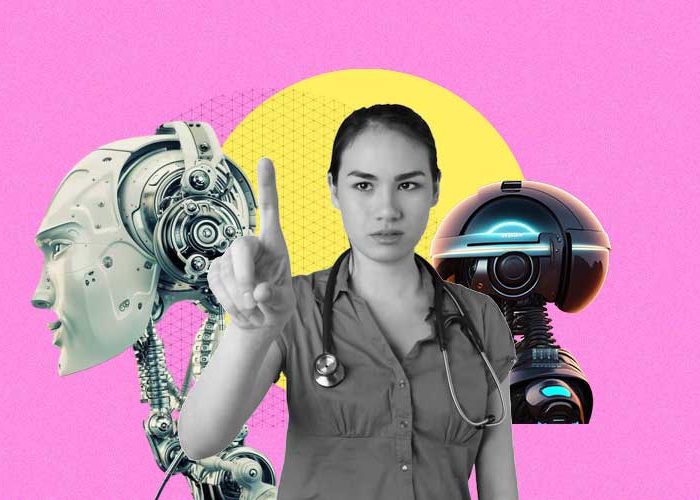
Revolutionizing the Healthcare Sector in India with AI
The transformation of healthcare in India: Exploring AI’s disruptive potential post-FinTech
The healthcare industry in India has seen significant advancements in recent years, particularly with the advent of FinTech. However, the emergence of Artificial Intelligence (AI) is set to revolutionize the sector even further. With AI’s potential to optimize healthcare services, improve patient outcomes, and reduce costs, it is no wonder that the technology is generating a lot of interest among healthcare stakeholders in India.
In this article, we will explore the impact of AI on the healthcare industry in India and examine its potential to transform the sector. We will also discuss the challenges that AI faces in healthcare, including concerns around data privacy and security. Finally, we will highlight some of the AI-powered solutions already making waves in the Indian healthcare space and provide insights into what the future of AI in healthcare may hold.
Overview of the Indian Healthcare Industry
The Indian healthcare sector is a mix of public and private healthcare providers, with the government accounting for a significant portion of healthcare expenditure. However, despite significant government investment in healthcare, the sector still faces challenges such as inadequate healthcare infrastructure, a shortage of healthcare professionals, and a lack of accessibility to healthcare in rural areas.
The Rise of AI in Healthcare
AI has the potential to revolutionize the healthcare industry by providing solutions to many of the challenges faced by the sector in India. AI technology can help to automate routine tasks, such as record-keeping and scheduling appointments, freeing up healthcare professionals to focus on providing quality care to patients. AI can also help to improve accuracy in diagnosis and treatment, reduce medical errors, and increase patient safety.
AI is being used in various aspects of healthcare in India, including medical imaging, drug discovery, and disease diagnosis. For example, AI-powered diagnostic tools can help to identify diseases early, allowing for early intervention and treatment. AI can also help to analyze large datasets, providing insights into disease patterns and treatment efficacy, which can inform public health policies and improve patient outcomes.
AI-Powered Medical Imaging
One of the most significant applications of AI in healthcare is medical imaging. AI-powered medical imaging tools can help to analyze medical images, such as X-rays and MRIs, and identify anomalies that may be difficult for human doctors to detect. AI can also help to predict the likelihood of certain conditions, such as heart disease or cancer, based on a patient’s medical images.
AI-powered medical imaging tools have the potential to improve the accuracy of medical diagnoses, reduce the time required for diagnosis, and improve patient outcomes. AI can also help to reduce the workload of healthcare professionals, allowing them to focus on providing quality care to patients.
AI-Powered Drug Discovery
AI can also help to accelerate the drug discovery process, which is a time-consuming and costly process. AI can analyze large datasets and identify patterns that may be difficult for human researchers to detect. This can help to identify potential drug candidates and accelerate the drug development process.
AI can also help to reduce the cost of drug development by predicting the efficacy of potential drug candidates and reducing the need for costly clinical trials. AI can also help to identify potential side effects of drugs, allowing for early intervention and reducing the risk of harm to patients.
Challenges to Implementing AI in Healthcare in India
While the potential benefits of AI in healthcare are significant, there are also several challenges to implementing AI in the healthcare sector in India. One of the biggest challenges is the lack of infrastructure and skilled professionals required to implement AI solutions.
Another challenge is the cost of implementing AI solutions in healthcare. AI-powered medical devices and tools can be expensive, which may make them inaccessible to many healthcare providers in India. There is also a lack of regulatory framework for AI in healthcare, which may make it difficult for healthcare providers to implement AI solutions.











